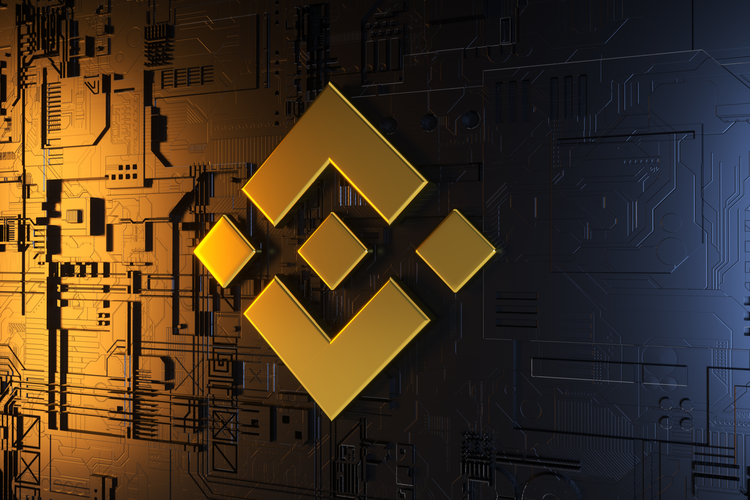Binance has announced that the first major network upgrade for its Binance Chain mainnet, dubbed ‘Galileo’, is almost ready to be rolled out.
According to a recent announcement, the hard fork is scheduled to take place at block height 20,300,000 on July 15, 2019, at approximately 7:00 AM (UTC). In a hard fork upgrade, the original chain splits into two for the purpose of a technical upgrade or due to ideological differences within the community.
All validators and full node runners are expected to upgrade to software version 0.6.0 by July 10, 2019. Failure on the part of full node runners to upgrade will result in a failure to sync with the upgraded Binance Chain.#Binance Chain Mainnet Upgrade Announcementhttps://t.co/4gFyNLw2yI pic.twitter.com/NcZHsIqZe9
— BNB Chain (@BNBCHAIN) July 4, 2019
Galileo: New Features Coming to Binance Chain
The Binance Chain node software now includes a provision to delist trading pairs on the DEX. The delisting of a token or one of its trading pairs usually takes place due to stagnancy in trading volumes. Delisting or removing these trading pairs will, in such cases, improve liquidity and reduce the overall network congestion. In order to save on network costs, the Binance Chain Evolution Proposal (BEP) proposes that the community delist these trading pairs through voting on a proposal. The Galileo version will also include a state sync enhancement feature, as highlighted in BEP 18. The feature provides an easy way for newly-joined users to sync to the latest status of the Binance Chain so that the user does not need to download the entire blockchain and sync from block height zero. It is worth noting, however, that the state sync feature does not download blocks before the user-entered block height. The BEP improves upon the already-existing state sync feature by introducing a snapshot feature, allowing users to manually input a block height. The upgraded version will also include the concepts of ‘taker’ and ‘maker’ in the trade matching logic, as defined in BEP-19. New orders from the current block will be referred to as “Taker orders”, while leftover ones from the previous block will be called “Maker Orders”. This logic is incorporated to make the system more user-friendly, according to Binance.
Time Locked Tokens and Offline Transaction Signing
The next feature slated to be incorporated is the ability to time-lock tokens on the Binance Chain. The time-lock feature will enable users to transfer locked tokens to a completely code-controlled escrow account, from which no withdrawal or transfer is allowed before the expiry of the lock period. Another important security feature included in the update enables clients to generate and sign new transactions even on an offline machine. The transactions entered into the offline system will be sent to the network for validation through a separate online system, creating an effective air gap. In its announcement post, Binance said that users storing their BNB tokens on third party exchanges and hardware wallets do not need to perform any migration steps unless the service provider specifically asks them to. Are you looking forward to taking advantage of the new features included within the upcoming Galileo upgrade? Let us know your thoughts in the comments below.
Top crypto platforms in the US
Disclaimer
In adherence to the Trust Project guidelines, BeInCrypto is committed to unbiased, transparent reporting. This news article aims to provide accurate, timely information. However, readers are advised to verify facts independently and consult with a professional before making any decisions based on this content. Please note that our Terms and Conditions, Privacy Policy, and Disclaimers have been updated.

Rahul Nambiampurath
Rahul Nambiampurath's cryptocurrency journey first began in 2014 when he stumbled upon Satoshi's Bitcoin whitepaper. With a bachelor's degree in Commerce and an MBA in Finance from Sikkim Manipal University, he was among the few that first recognized the sheer untapped potential of decentralized technologies. Since then, he has helped DeFi platforms like Balancer and Sidus Heroes — a web3 metaverse — as well as CEXs like Bitso (Mexico's biggest) and Overbit to reach new heights with his...
Rahul Nambiampurath's cryptocurrency journey first began in 2014 when he stumbled upon Satoshi's Bitcoin whitepaper. With a bachelor's degree in Commerce and an MBA in Finance from Sikkim Manipal University, he was among the few that first recognized the sheer untapped potential of decentralized technologies. Since then, he has helped DeFi platforms like Balancer and Sidus Heroes — a web3 metaverse — as well as CEXs like Bitso (Mexico's biggest) and Overbit to reach new heights with his...
READ FULL BIO
Sponsored
Sponsored

